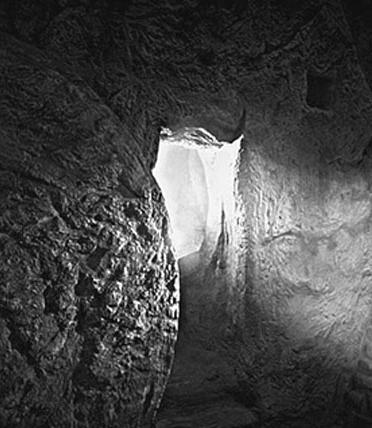"Religious righteousness! There seem[s] to be no surer means of rescuing us from the alarm cry of conscience than religion and Christianity. Religion gives us the chance, beside and above the vexations of business, politics, and private and social life, to celebrate solemn hours of devotion—to take flight to Christianity as to an eternally green island in the gray sea of the everyday. There comes over us a wonderful sense of safety and security from the unrighteousness whose might we everywhere feel. It is a wonderful illusion, if we can comfort ourselves with it, that in our Europe—in the midst of capitalism, prostitution, the housing problem, alcoholism, tax evasion, and militarism—the church’s preaching, the church’s morality, and the “religious life” go on their uninterrupted way. . . . A wonderful illusion, but an illusion, a self-deception! We should above all be honest and ask ourselves far more frankly what we really gain from religion. Cui bono? What is the use of all the preaching, baptizing, confirming, bell-ringing, and organ-playing, of all the religious moods and modes, . . . the efforts enliven church singing, the unspeakably tame and stupid monthly church papers, and whatever else may belong to the equipment of modern ecclesiasticism?
Will something different eventuate from all this in our relation to the righteousness of God? Are we even expecting something different from it? Are not we hoping by our very activity to conceal in the most subtle way the fact that the critical event that ought to happen has not yet done so and probably never will? Are we not, with our religious righteousness, acting “as if”—in order not to have to deal with reality? Is not our religious righteousness a product of our pride and our despair, a tower of Babel, at which the devil laughs more loudly than at all the others?"I think Barth in this quote and Dietrich Bonhoeffer elsewhere--are very skeptical of what they call "Religion". Both Barth & Bonhoeffer would be concerned with the way in which "Religion" can simply facilitate our own crooked desires--"our pride and our despair". However, their concern was not merely personal-- "my desire, my despair, my pride"--but, also institutional. Barth and Bonhoeffer both critiqued what they considered to be "the powers". This theme later gets picked up by the theological work of William Stringfellow & Walter Wink.
(Karl Barth, WGWM, 19–20)
Barth's concern regarding "Religion" is also a concern with particularity. One can readily see how this thing, this term, this metaphor called "Religion" can and has served to rob real religious traditions of their particularity-- their own uniqueness. The "Religion" that Barth is battering seeks to accomodate all religious traditions to a Hickean Exclusivism. This pluralistic proposal by theologian John Hicks argues that all "religions" are simply camped around the same mountain. In other words, Hick would argue that all religious traditions are really worshipping the same thing--the same God. However, here Hick is the example of "Religion" par excellence because he never lets us in on how it is that he has an unmediated, unitterupted, uninhibited view from above the highest mountain-top. Hick simply invades the territory of religious particularity, flattens out any difference, and continues marching on.
Once particular religious traditions have been relegated to "Religion" they lose all particularity; they are flattened and marched over. This flattening of particularity hides the very object of our gaze by way of a western liberal colonialism. This colonialism constructs a map in order to put everything (& everyone) in its "proper place". Of course, in Barth's situation he would have been much more concerned with how the Third Reich (Hitler)was positioning the Church via the institution of "Religion"--how Hitler wanted to white-wash the Church in order to flatten its particularity and peculiarity. One can see Barth's clear statement regarding such an accomodation in the "Barmen Declaration".
In much the same way as his "Barmen Declaration", Barth is here speaking out against the colonizing of God by humanity via our "righteous acts". Barth wants to make it abundantly clear that we cannot somehow tame God, postion God, or place God on a map. Rather, God has already and continues to position us via his Word.
Barth's attack on "Religion" & Institutions is a far cry from a western liberal relativism which is suspicious of all institutions and their practices.What is being attacked here is not "De vera religione" (the true religion) but, that false religion that is as old as Babel--the attempt of humanity to storm heaven through its "magnificent works".





